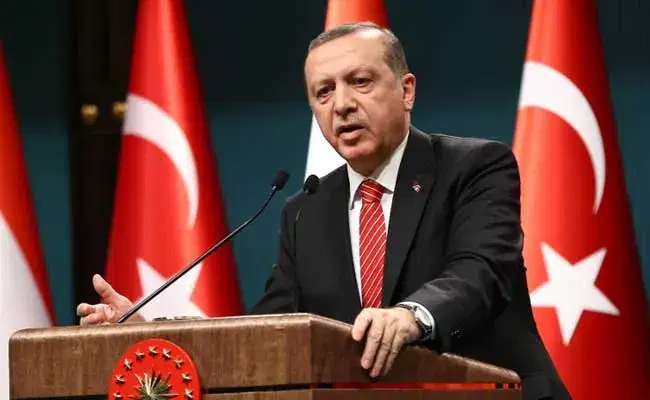Turkey is set to reopen its embassy in Damascus, marking a significant shift in regional dynamics, nearly 12 years after the outpost was closed due to the Syrian civil war. This development comes just days after the ousting of President Bashar al-Assad by Ankara-backed forces, a move that has reshaped Syria’s political landscape.
The reopening, scheduled for Saturday, coincides with high-level diplomatic talks in Jordan involving Middle Eastern and Western officials. These talks aim to address Syria’s future and the humanitarian crisis left in the wake of over a decade of conflict that has claimed more than 500,000 lives and displaced millions.
Turkey’s Strategic Role
Turkey’s Foreign Minister, Hakan Fidan, confirmed that Burhan Koroglu, the newly appointed charge d’affaires, departed for Syria on Friday to prepare for the embassy’s operations. Ankara has played a pivotal role in Syria’s conflict, supporting opposition forces and maintaining a complex relationship with the Islamist group Hayat Tahrir al-Sham (HTS), which spearheaded the offensive leading to Assad’s downfall.
Fidan emphasized the importance of diplomacy in ensuring regional stability, noting that Turkey had successfully urged Assad’s key allies, Russia and Iran, to abstain from military intervention during the Islamist-led rebel advance. “The most critical aspect was securing the understanding of the Russians and Iranians not to interfere militarily. They recognized the broader implications,” Fidan told Hobnob News.
Diplomatic Discussions in Aqaba
As Turkey reestablishes its diplomatic presence in Syria, officials from the European Union, the United States, and Arab nations convened in Aqaba, Jordan, to discuss Syria’s transitional governance. UN Special Envoy for Syria, Geir Pedersen, appealed for immediate humanitarian aid and measures to prevent the collapse of Syrian state institutions.
Qatar also announced plans to send a delegation to Syria to engage with transitional government officials on aid initiatives and the reopening of its embassy. Unlike other Arab states, Qatar had maintained a diplomatic distance from Assad’s regime since 2011.
Celebrations Across Syria
The announcement of Assad’s ouster has sparked nationwide celebrations, with Syrians taking to the streets in jubilation. The “Friday of Victory” saw large crowds in Damascus’ Umayyad Square, as well as in cities like Homs, Hama, and Idlib. Fireworks lit up the night skies as citizens expressed hope for a new era of peace and progress.
In Aleppo, Ahmad Abd al-Majed, an engineer who recently returned from Turkey, described the overwhelming emotions: “Syrians deserve to be happy. Many of us shed tears of joy and relief.”
In Sweida, a stronghold of Syria’s Druze minority, 77-year-old Bayan al-Hinnawi reflected on the significance of the moment. “After 17 years in prison under Assad’s rule, I never thought I’d witness this day,” he said.
Challenges Ahead
Despite the celebrations, Syrians face significant challenges in rebuilding their nation. Years of war, sanctions, and economic instability have left the country’s infrastructure in ruins. The international community is also grappling with the aftermath of Assad’s regime, including investigations into detention centers and reports of widespread disappearances.
The International Committee of the Red Cross estimates that over 35,000 individuals vanished during Assad’s tenure, with the true number likely much higher. “We just want a hint of where they were,” Abu Mohammed told Hobnob News as he searched for news of missing relatives at the Mazzeh airbase in Damascus.
Regional and Global Implications
In the wake of Assad’s fall, Israel and Turkey have carried out strikes targeting former regime military sites in Syria. Early Saturday, Israeli forces reportedly destroyed a scientific institute and military facilities in Barzeh and other areas near Damascus, according to the Syrian Observatory for Human Rights.
The strikes aim to neutralize what remains of Syria’s military capabilities under the former regime. Israel has also stationed troops in the UN-patrolled buffer zone on the Golan Heights, a move criticized by the UN as a violation of a 1974 armistice.
As the region adjusts to a post-Assad Syria, the reopening of Turkey’s embassy symbolizes a renewed push for diplomatic engagement and stabilization. However, the road to recovery and reconciliation remains fraught with challenges, requiring sustained international cooperation and commitment.

